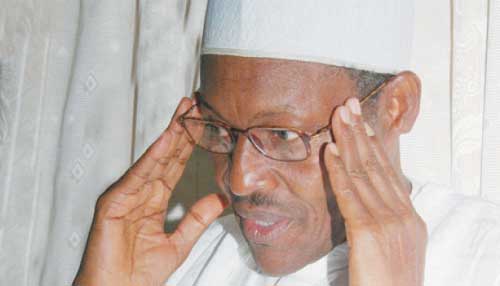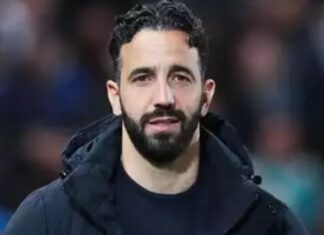As campaigning reached a peak for this Saturday’s presidential election in Nigeria, residents of the volatile city of Kaduna made their own preparations – stock-piling food and securing shops and homes for fear of post-poll unrest.
Just days before the vote, men and women weaved through the northern metropolis’ gridlocked streets with wheelbarrows full of staples such as black-eyed beans and plantains to stash safely at home.
“That woman is stocking up before the election in case there is trouble,” said 38-year-old Shola Oyeniyi, sitting outside the shop where she sells traditional robes.
“Lots of people are doing it so that they won’t need to go out if there is any trouble,” Oyeniyi said. “People are scared. Some are leaving Kaduna to return to their home villages until it is over.”
Few have forgotten how the city erupted into ethno-religious violence after the last election in 2011, also between President Goodluck Jonathan and former military ruler Muhammadu Buhari. About 800 people were killed in three days of violence across Kaduna state.
“I lost my cousin, his wife and their children. They were burned inside their car,” said Godwin Chukwudi, 33, gazing at the floor in the cramped cloth stall he runs in Kaduna’s central market.
This weekend’s election is being tipped as the closest and most polarising vote since Nigeria – Africa’s most populous nation, its biggest economy and top energy producer – returned to civilian rule in 1999.
Ratings agency Standard & Poor’s said political risk was a significant factor in its decision to downgrade Nigeria’s credit to B+ from BB- last week.
There are already signs that the contest between Jonathan, a southern Christian, and Buhari, a Muslim northerner, might provoke another wave of religious violence in a city characterised by its fractured identity.
On Monday, dozens of men broke away from a peaceful rally in support of Buhari’s All Progressives Congress (APC) to attack the city centre campaign office of Jonathan’s People’s Democratic Party (PDP).
The youths slashed posters of Jonathan with machetes and hurled rocks at his party campaign office, prompting retaliation from PDP supporters before soldiers and police restored calm.
The clash is a reminder of the tensions within a city where, like much of northern Nigeria, the APC enjoys widespread popular support.
“What happened must be condemned. It was uncalled for,” PDP youth leader Danjuma Bello Sarki said. “The APC mobilises people to intimidate others.”
Shehu Sani, a human rights activist standing as an APC senatorial candidate, blamed a small minority acting in revenge for Jonathan supporters destroying APC posters.
“No-one in the party encouraged anyone to take action against the PDP but you can’t stop the young people from taking action,” he told Reuters.
Kaduna’s southern suburbs are mainly inhabited by Christians whereas its northern parts, including the commercial centre, are predominantly Muslim, a fitting metaphor for the country whose 170 million people are split roughly between Muslims and Christians and north and south.
The two sides, divided by the Kaduna River, are united by a bridge spanning a few hundred metres. Travelling across the bridge from south to north, girls in jeans quickly give way to youngsters wearing hijabs.
In northern neighbourhoods, posters of Jonathan have been torn down, leaving Buhari’s gap-toothed grin as the only one beaming down from trees and lamp-posts.
Religious leaders say they have been working together since the 2011 violence to engage the young men who hold the key to fragile peace in Kaduna, which is seen as a litmus test for the country sliding into widespread post-election violence.
“Our worry is that leadership in Nigeria seems to be a ‘do or die’ affair. That level of desperation is a problem,” said Khalid Abubakar Aliyu, secretary general of the JNI Muslim society.
But Sunday Ibrahim, secretary of the Christian Association of Kaduna, said that in a modernising nation of mobile phones, cable television and the internet, religious leaders held limited influence.
“There is a pocket of boys and girls who don’t go to a church or mosque. Even if they go, they don’t listen,” he said. “They can cause a crisis and they aren’t ready to listen to anybody.”














